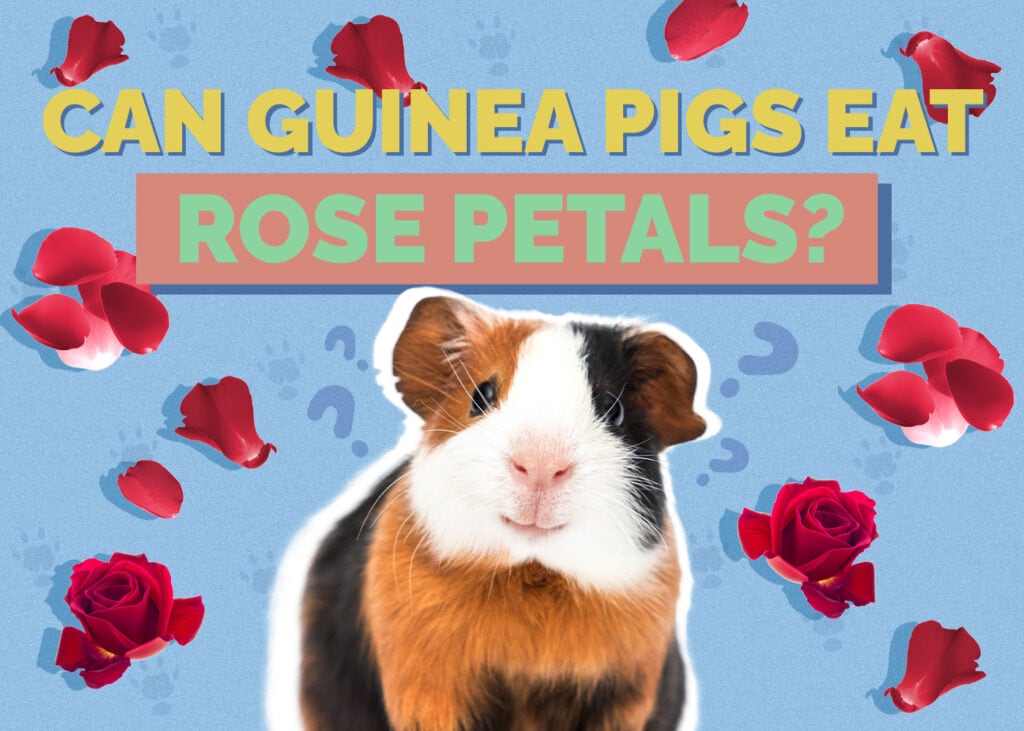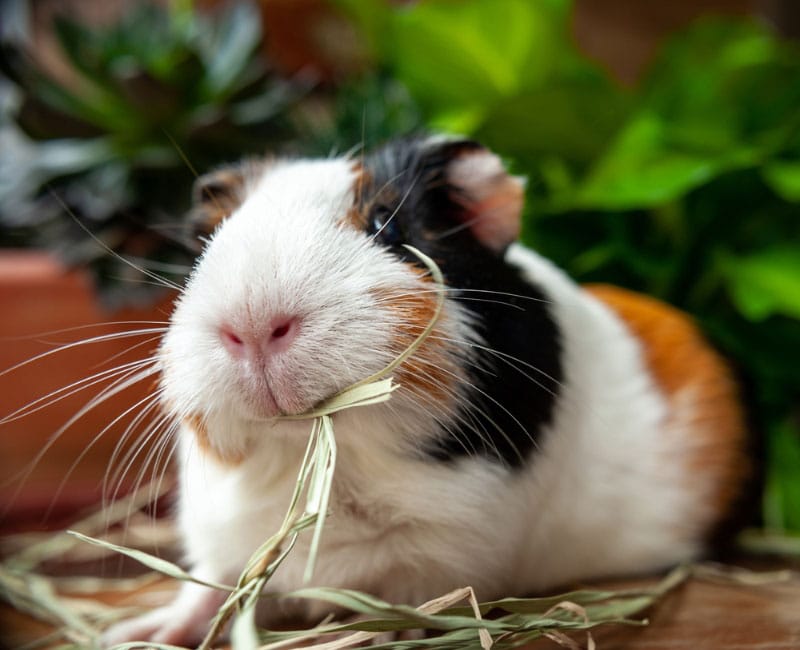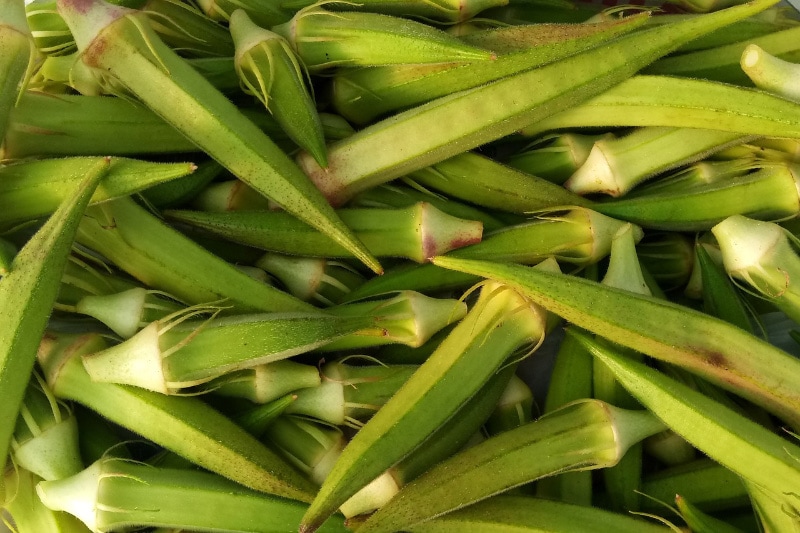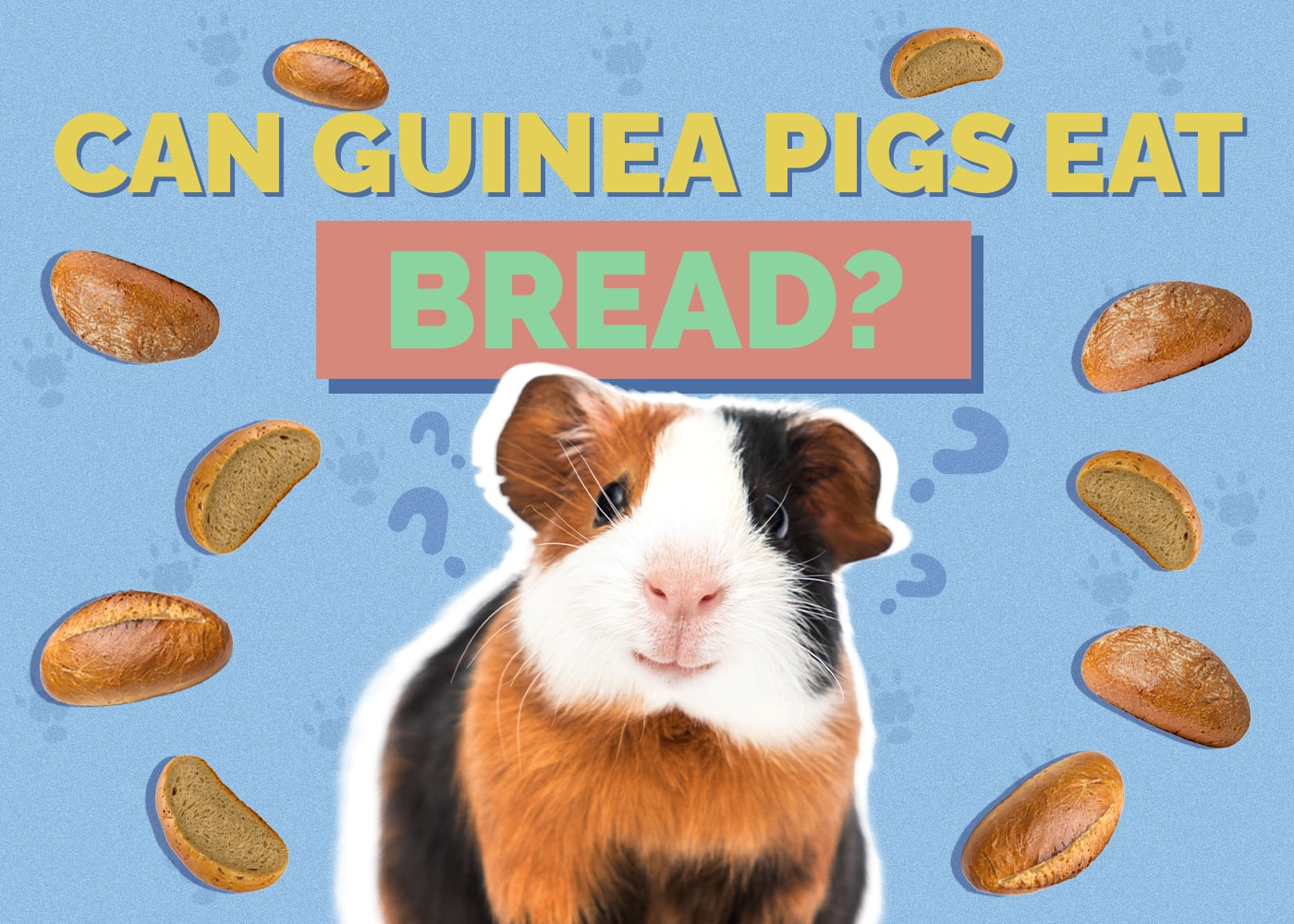Can Guinea Pigs Eat Rose Petals? Vet-Approved Nutrition Facts
Updated on

Click to Skip Ahead
Whether you are a human or a Guinea Pig, variety is essential to a healthy diet. Eating an assortment of foods provides the most nutrients, but choosing only safe items to feed your Guinea Pig is essential. Did you know that Guinea Pigs can eat rose petals? Most commonly found as a dehydrated treat, they are a great way to add some variety and nutrients to your cavy’s diet, as long as they are offered in moderation.
In this article, we’ll discuss the nutritional value of rose petals and how they can benefit your Guinea Pig’s diet. You’ll also learn safety tips for feeding rose petals and what else to include in your Guinea Pig’s daily meals.
Rose Petals: Nutrition Facts
As you might imagine, there’s limited research regarding the nutritional value of most flowers. However, roses are one of and handful of exceptions to this rule. Several studies 1 have found that rose hips, the part of the flower just below the petals, contain high levels of beneficial antioxidants and Vitamin C.
Like humans, Guinea Pigs can’t synthesize their own vitamin C, instead relying on supplements and eating foods rich in this vitamin. Although rose hips and petals don’t offer much nutrition to a Guinea Pig, the vitamin C content makes them a better choice for treats than some other foods.

How to Include Rose Petals in Your Guinea Pig’s Diet
Ensuring your pet enjoys a well-balanced nutritious diet is vital, and flower petals should only account for a fraction of the plant material you serve your pet. Here’s what a healthy Guinea Pig diet should look like:
1. Grass Hay

Most of your Guinea Pig’s daily diet should consist of high-quality grass hay, like Timothy or meadow. Guinea Pigs should always have access to hay. Chewing the tough stalks helps keep their teeth worn down, while the hay fiber benefits their digestive health.
2. Pellets and Leafy Greens
Guinea Pigs should also eat 1–2 tablespoons of commercial pellets once a day. Choose a brand formulated for Guinea Pigs and fortified with Vitamin C. Leafy greens such as kale, Romaine lettuce, and parsley, plus colorful vegetables like bell pepper and carrots should also be offered daily.
3. Fruit and Flowers

Fruit and flowers like rose petals can be offered occasionally as treats. Foods high in sugar or with limited nutritional value are best fed sparingly. Guinea Pigs can become overweight and may ignore healthier foods in favor of tasty treats if they are given them too often.
4. Supplements
Ask your veterinarian if your Guinea Pig needs additional Vitamin C supplementation.
5. Fresh Water

Providing fresh water every day is crucial for your Guinea Pig’s health. Filtered tap water is the safest and least expensive type.
Safety Tips for Feeding Rose Petals to Guinea Pigs
As an occasional treat, rose petals are a healthy addition to your Guinea Pig’s diet, but here are some tips to follow to ensure they’re safe to consume.
- Avoid feeding your Guinea Pig rose petals purchased commercially from a flower shop or grocery store. The flowers are generally treated with fertilizers and pesticides, which may be unsafe for Guinea Pigs to ingest.
- For the same reason, avoid serving rose petals gathered from a garden unless you know which chemicals they’ve been treated with.
- Outdoor flowers are exposed to toxic substances from car exhaust and pesticides. The roses can absorb these chemicals and pass them on to your Guinea Pig when eaten.
- The safest (and easiest) way to feed your Guinea Pig rose petals is by purchasing specifically prepared and packaged Rose Petals & Buds, that are designed with guinea pigs in mind. They come in dehydrated form, with a feeding guide and guaranteed analysis, so you know you are offering your cavy friends the right thing.
Conclusion
Herbivorous Guinea Pigs can consume many plants, including hay, flowers, fruits, and vegetables. They can eat rose petals, and parts of the flower can provide Guinea Pigs with the essential nutrient Vitamin C. You can help your Guinea Pig stay healthy by rotating the types of plants you offer.
Slowly introduce any new food, including rose petals, to ensure it doesn’t upset the Guinea Pig’s stomach. If you aren’t sure whether a plant is safe for your Guinea Pig to eat, contact your veterinarian.











